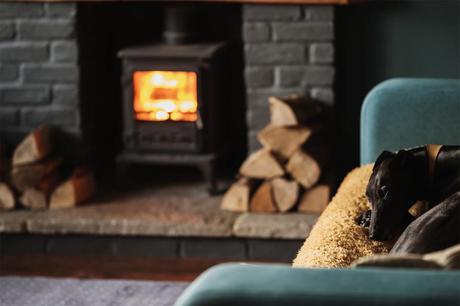
Looking to save money on your bills, and help the environment? Check out these practical tips below:
Lower your temperature
A simple way to save money on bills is to turn down the temperature you wash your clothes at. Simply turning the temperature down from 40 to 30 degrees can be up to a third cheaper. Over the space of the year it could add up to a saving of £52.[1] An occasional 'hot' wash is still a good idea though as it helps to ensure the washing machine is kept clean.
Don't be loyal!
Hundreds of pounds could be saved by switching energy providers, considering utility bills take up a huge sum of household expenditure, this is highly worth looking in to. Remember, it's not just the Big Six that offer competitive deals, switching to a smaller energy supplier could also mean a reduction in bills. It's estimated that 62% of bill payers didn't switch last year, so don't miss out on a cheaper tariff.[2]
Sort those draughts
Energy wastage can be caused by many things, including draughty floors, windows and doors. Although they might seem small, gaps and cracks have the potential to let out a large amount of heat, while allowing cold air in - impacting on your bills unnecessarily. One way to tackle this is by installing draught excluders on your doors and windows. Even keyholes and cat flaps can make a big difference, so try to keep them covered where you can. Alternatively, sealants, insulating strips and even rolled up newspaper can go a long way to ensuring heat stays in your home. Finally, double-glazing is extremely effective at keeping your home well insulated. Whilst installation can be costly, it's a definite way to save on heating bills.
It pays to be SMART
Luckily, new technological advancements are helping us meet our target of reducing our energy bills. Devices such as smart thermostats can go a long way to reducing heating bills by allowing greater control. As well as giving you the option to heat specific rooms, smart thermostats have the capabilities to learn your home heating habits - allowing you to consistently maintain the right temperature at the right time of day. Latest innovations, such as handy apps, have been designed to make smart technology even more convenient. If used correctly, it's estimated that they could save households around £150 a year.[3]
Be efficient
When you go to replace your household appliances, be sure to look for the long-term most energy efficient appliances . Whilst it may cost more initially, the long-term payoff will help reduce your bills. Look out for products that score an A+ and above. An A+++ fridge for example, could save you around £190 over ten tears when compared to an A+ model. [4]
Remember to switch off
It is a common habit to just leave household appliances on standby mode, however turning them off completely is far better for energy efficiency. TVs, laptops and mobile phone chargers are still switched on even when they're on standby, which means they're using energy unnecessarily. According to the Energy Saving Trust, you could save around £30 a year just by switching off appliances properly, whilst households with more gadgets could save between £50 and £80.[5]
Insulate!
By using the correct insulation, a large sum of money could be saved on heating your home. In fact, it's estimated that a quarter of all heat from your home could be lost through your roof if proper insulation isn't in place.[6] Insulation grants are offered as part of the Government's Energy Company Obligation Scheme, so insulating your home could be easier than you think. Alternatively, smaller 'quick fixes' can also help - foam tubes that cover your pipes can keep your water warmer for longer and cost just a few pounds. You can also use a 'lagging jacket' which fits over your boiler and helps retain heat. At around £10, they're a cost-effective way to prevent you from using extra energy to reheat water.
Living rurally?
It is essential that if you live in a remote area off the mains gas grid, you attempt to keep bills as low as can be. This can be done by switching from more traditional off-grid fuels like oil to a cleaner, greener alternative, such as LPG (liquefied petroleum gas) e.g. via an LPG tank. As well as the LPG price potentially being lower, it also has the lowest carbon footprint of any off-grid fossil fuel, LPG and the is better for the environment and it's cost-effective.[7] Its abundance of supply also makes it reliable, so you never need to worry about running out.
[1] https://www.moneysupermarket.com/gas-and-electricity/energy-saving-tips/
[2] https://www.energysavingtrust.org.uk/home-insulation/roof-and-loft
[3] https://www.moneysupermarket.com/gas-and-electricity/energy-saving-tips/
[4] https://www.moneysupermarket.com/gas-and-electricity/energy-saving-tips/
[5] https://www.moneysupermarket.com/gas-and-electricity/energy-saving-tips/
[6] https://www.energysavingtrust.org.uk/home-insulation/roof-and-loft
[7] https://www.liquidgasuk.org/uploads/DOC5A5F2DC5A7907.pdf
